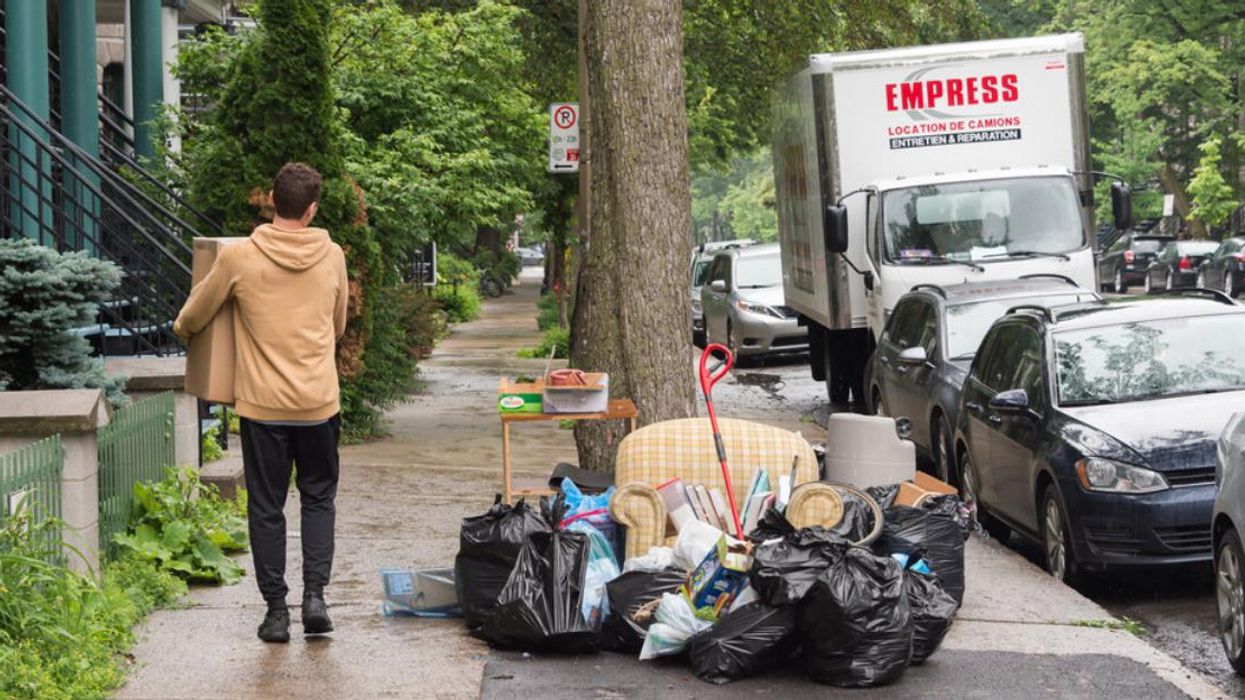A Canadian First-Time Home Buyer Tax-Free Savings Account Is In The Works
It will work a lot like a registered retirement savings plan (RRSP).

A person carries a box toward a home, next to discarded furniture by the side of the road.
The federal government is introducing more support to reduce one of the biggest hurdles for young people trying to break into a tough real estate market: down payments. As part of the 2022 budget, first-time homebuyers can now qualify for a tax-free savings account and an increased tax credit to help cover the cost of a down payment.
Much like a registered retirement savings plan (RRSP), contributions to a Tax-Free First Home Savings Account (FHSA) are tax-deductible. Withdrawals from an FHSA that go toward a home purchase are non-taxable.
Starting in 2023, annual savings of $8,000 per person (up to $40,000 maximum) can go toward the purchase of a first home. Individual tax-free savings accounts can be combined for households investing in a property together.
Any Canadian resident who is 18 years old and up can qualify to open an FHSA, as long as they haven't owned a home in the prior four years.
To help prospective buyers save up for a home, the government is also doubling the First-Time Home Buyers’ Tax Credit to $10,000. The credit provides up to $1,500 in direct support to home buyers and can apply to homes purchased on or after January 1 of this year.
Meanwhile, the First-Time Home Buyer Incentive allows eligible first-time homebuyers to lower borrowing costs by sharing them with the government.
The shared equity mortgage program allows buyers to borrow 5 or 10% of the purchase price of a home and then pay back the same percentage of the home's value when they sell (or within 25 years).
That means someone who gets a 10% incentive to buy a $200,000 home, or $20,000, will have to repay $15,000 if their home decreases in value to $150,000.
The budget changes aim to combat rising housing prices across the country. In Montreal, the average sale price for a home reached $583,295 last month, marking an 18% increase since last year and an all-time high.
- $400,000 Homes For Sale In 11 Different Cities In Quebec ... ›
- How Canada's Housing Affordability Compares To Other Countries ... ›
- Young Montrealers Are Especially Hard-Hit By The Housing Crisis ... ›
- Canada To Make Feminine Hygiene Products More Accessible — Here's What To Know - MTL Blog ›
- 6 Ways The Government Of Canada Is Making Housing Affordable For First-Time Home Buyers - MTL Blog ›
- What The Heck Is A GIC? And When Is A Good Time To Invest? We Asked An Expert - MTL Blog ›
- Canada Is Introducing A New Tax-Free Home Savings Account — Here Are The Details - MTL Blog ›
- McGill Is Offering A Free Personal Finance Course So You Can Actually Learn Useful Skills - MTL Blog ›
